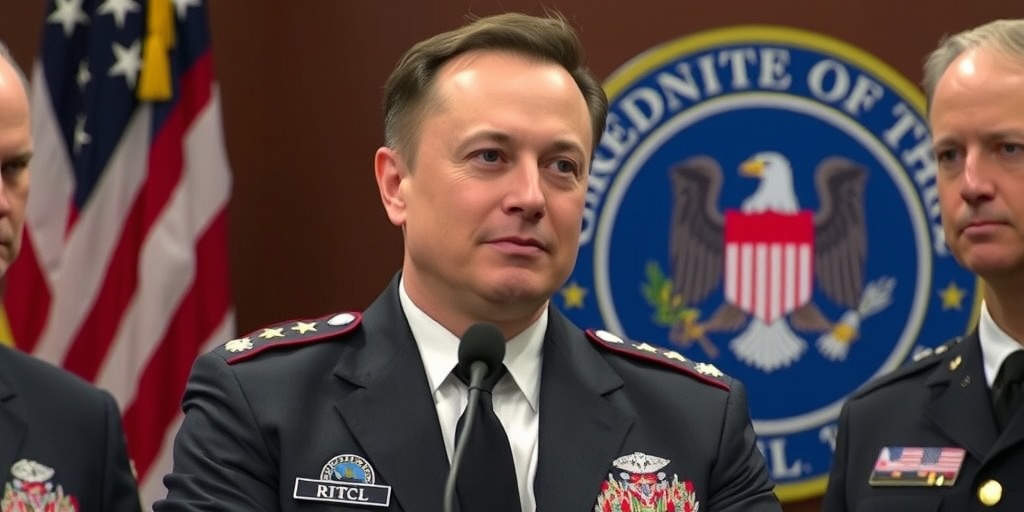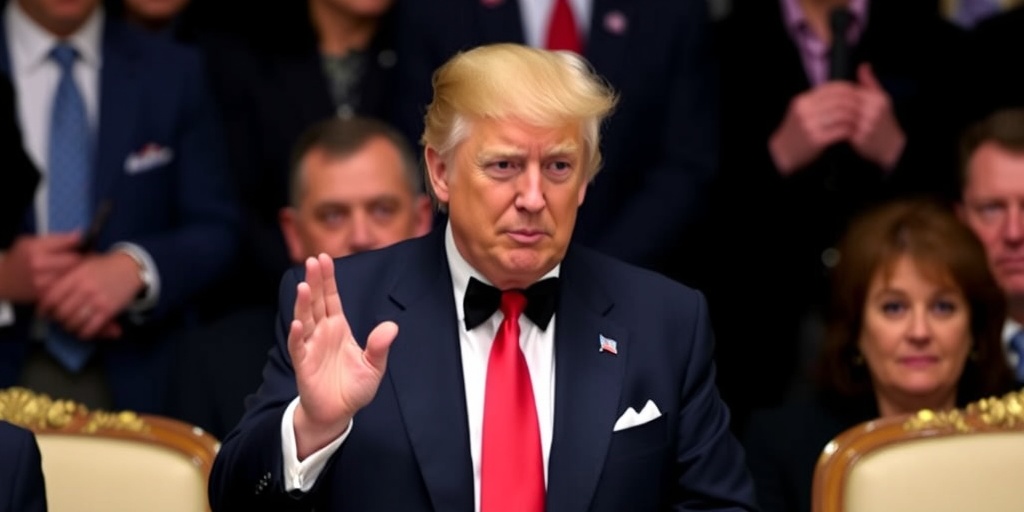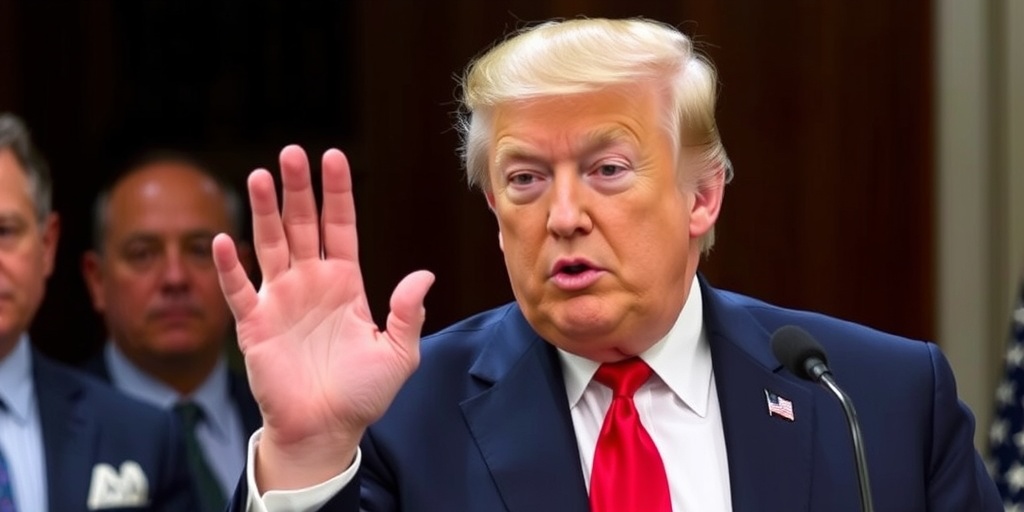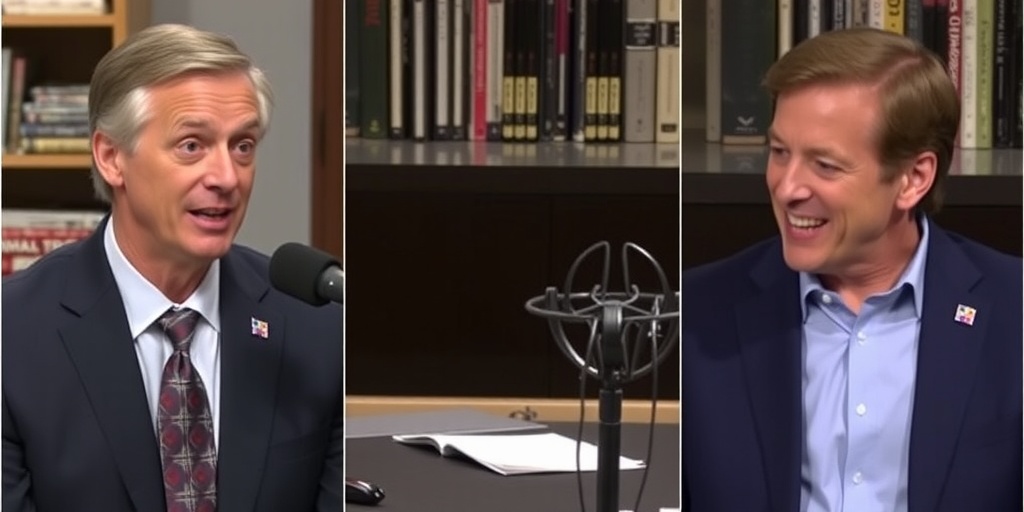Now Reading: Musk Meets with NSA and Cyber Command Chief This Week
-
01
Musk Meets with NSA and Cyber Command Chief This Week
Musk Meets with NSA and Cyber Command Chief This Week

Elon Musk’s Fort Meade Visit Signals Strategic Shift for National Security Agencies
In a notable development within U.S. national security circles, Elon Musk, the prominent entrepreneur and CEO of SpaceX and Tesla, visited the National Security Agency (NSA) and U.S. Cyber Command at Fort Meade, Maryland, this past Wednesday. This visit, which marks Musk’s first engagement with the NSA in his role as a special adviser to President Donald Trump, underscores the potential for significant restructuring within the federal workforce, particularly in critical branches of the intelligence community.
According to a spokesman from the NSA, Musk met with General Timothy Haugh, the head of both the NSA and Cyber Command, during his visit. This meeting is particularly significant as it reflects a concerted effort to align the priorities of key national security agencies with the broader strategic vision set forth by the Trump administration. General Haugh, recognized for his dual role at the NSA and Cyber Command, has been actively engaging with senior White House officials, including Secretary of Defense Pete Hegseth and Director of National Intelligence Tulsi Gabbard, to ensure that national security efforts are synchronized closely with the administration’s objectives.
The timing of Musk’s visit is pertinent, coming at a time when the Trump administration is exploring avenues to reduce the size of the federal workforce. The NSA, known for its extensive bureaucracy, represents one of the more complex layers within the U.S. intelligence apparatus, focusing on the collection and analysis of global communications to gather crucial intelligence. During his time at the agency, Musk’s insights on technological innovation and efficiency could provide a fresh perspective on how to streamline operations and address ongoing challenges.
Musk has previously expressed criticism regarding federal government computer systems, highlighting concerns over vulnerabilities and inefficiencies. In the context of his current role, his expertise in technology and cyber operations may bring a unique approach to these longstanding issues within the NSA. Despite the agency being known for its advanced cryptology and network defense capabilities, there remains an ongoing dialogue about the need for modernization in light of emerging threats in the cyber domain.
Amplifying the need for such modernization, Musk made headlines earlier this week when he addressed a disruptive cyberattack on X, the social media platform he owns. On Fox News, he revealed that the attack originated from IP addresses linked to the "Ukraine area." These comments ignited discussions on cybersecurity and the geopolitical dimensions of digital threats. However, skepticism loomed over Musk’s assertions when an activist hacking group known as Dark Storm claimed responsibility for the attack, raising questions about the veracity of Musk’s claims regarding the attack’s origin.
Musk’s visit and recent remarks illustrate the evolving landscape of cyber threats that U.S. agencies face today. As Cyber Command, which operates out of the same location as the NSA, grapples with an increasing number of cyber threats both domestically and internationally, collaboration between tech leaders and intelligence agencies may prove vital in bolstering national defense.
The convergence of Musk’s technological prowess and the NSA’s intelligence capabilities opens the door for innovative solutions to enhance national security. With cyber warfare and digital espionage on the rise, the collaboration between industry leaders and intelligence agencies may play a pivotal role in safeguarding sensitive information and maintaining the integrity of critical infrastructure.
Going forward, analysts will be observing closely how this collaboration unfolds, particularly concerning the strategies and frameworks that emerge from this interaction. As the global landscape continues to change, the role of private sector innovation in public security will be a focal point for national defense experts.
In conclusion, Elon Musk’s unexpected visit to the NSA at Fort Meade signals the potential for transformative changes within U.S. intelligence operations. With the Federal workforce under scrutiny for possible reductions and a pressing need for modernization, Musk represents a new wave of thinking that could lead to significant advancements in the capabilities of the NSA and Cyber Command. This intersection of technology and national security promises to shape the future of how the United States responds to evolving threats in an increasingly complex global environment.
Stay Informed With the Latest & Most Important News
Previous Post
Next Post
-
 01New technology breakthrough has everyone talking right now
01New technology breakthrough has everyone talking right now -
 02Unbelievable life hack everyone needs to try today
02Unbelievable life hack everyone needs to try today -
 03Fascinating discovery found buried deep beneath the ocean
03Fascinating discovery found buried deep beneath the ocean -
 04Man invents genius device that solves everyday problems
04Man invents genius device that solves everyday problems -
 05Shocking discovery that changes what we know forever
05Shocking discovery that changes what we know forever -
 06Internet goes wild over celebrity’s unexpected fashion choice
06Internet goes wild over celebrity’s unexpected fashion choice -
 07Rare animal sighting stuns scientists and wildlife lovers
07Rare animal sighting stuns scientists and wildlife lovers





















